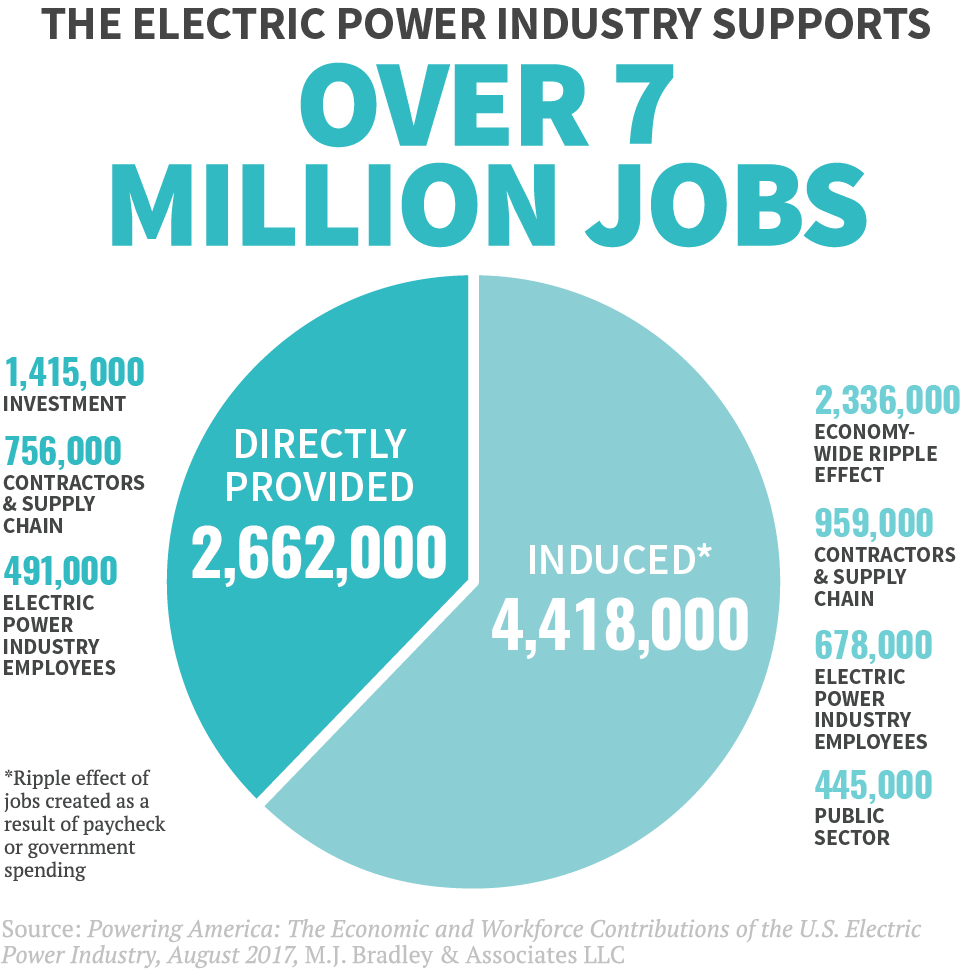
Blue Ridge Energy’s Phil Crump says his job as a network security administrator is a perfect fit for him because he likes knowing that his expertise helps protect his friends and neighbors from hackers.
“We all work diligently to protect the thousands of members of our community,” said Crump, a 10-year veteran at the co-op in Lenoir, North Carolina. “Really, we view every single one of those members as part of one big Blue Ridge family.”
Crump is one of several electric utility employees featured in a new report on the wide-ranging economic contributions of electric co-ops and companies to the nation’s workforce and economy.
Powering America: The Economic and Workforce Contributions of the U.S. Electric Power Industry, was released jointly Aug. 2 by NRECA, the American Public Power Association and the Edison Electric Institute.
The report concludes that the industry directly employs 2.7 million people, including staff, contractors and supply chain workers.
But the economic impact reaches beyond that. The report estimates the market impact of the power industry ultimately supports more than 7 million jobs, one of every 20 in the United States, and contributes $880 billion to the national economy.
“Affordable and reliable electricity is the heartbeat of the American economy and is essential to the nation’s economic growth,” said NRECA CEO Jim Matheson. “As not-for-profits owned by the members we serve, our broader purpose is to empower local communities to thrive. Co-ops are proud to continue recruiting top-tier talent from local communities as we work to meet tomorrow’s energy needs.”
The power industry’s ongoing efforts to keep pace with customers’ changing needs and expectations have benefited the economy. Each year, electric utilities spend more than $135 billion on infrastructure, “a level of investment that is more than twice what it was a decade ago,” the report stated.
At a news conference discussing the report, Paul Allen, senior vice president of M.J. Bradley & Associates, which analyzed the data, said Powering America is “the most comprehensive study and report ever done on the full dimension of jobs and employment and the broad economic impact of the electric power industry.”
Until now, said Allen, no report had quantified “what we might think of as the first five percent of the American economy. Virtually every other sector of the economy depends to a significant degree on the safe, affordable, reliable and environmentally sustainable provision of electricity…and the women and men of the electric industry who make that happen.”
Another bright spot in the report highlights the industry’s commitment to hiring military veterans. More than 10 percent of new hires in the sector came from the armed services in 2014, the latest year for which data are available.
These jobs make a difference because, a “disproportionate number” of veterans come from rural America, said Michelle Rostom, NRECA’s director of workforce development and coordinator of the association’s Serve Our Co-ops; Serve Our Country veterans hiring initiative. Census data show more than 40 percent of military recruits have rural roots.
“It’s a large population that historically has had difficulty finding work when they return,” said Rostom.“We owe our veterans the opportunity to transition into engaging civilian jobs with great benefits, giving them good work in their local community.”
The 86 co-ops participating in Serve Our Co-ops; Serve Our Country employ more than 400 vets as lineworkers, cybersecurity professionals, accountants and other positions.
Victoria A. Rocha is a staff writer at NRECA.
